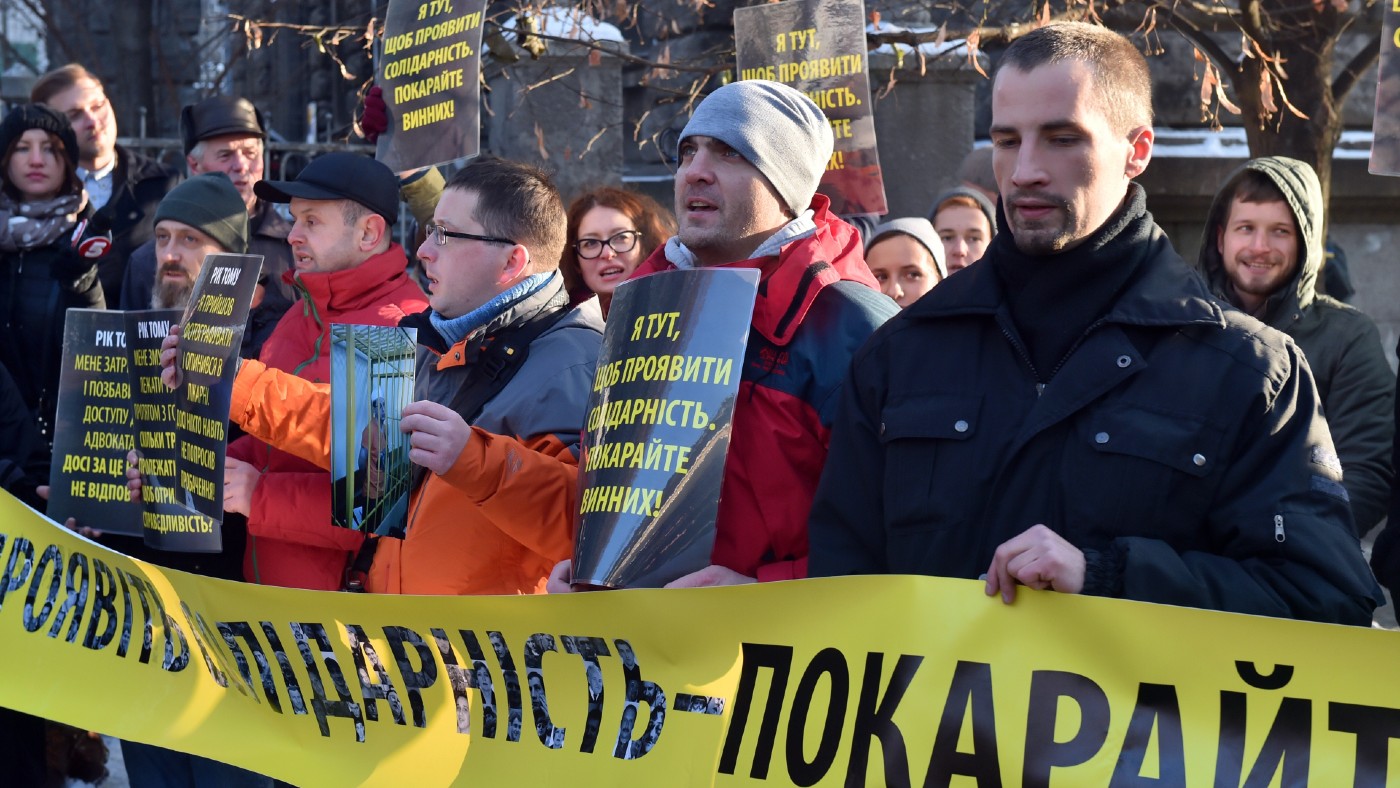Blaming the victim: has Amnesty gone soft on Putin?
Recent report on Russia’s war in Ukraine has seriously tarnished good name of human rights organisation

A free daily email with the biggest news stories of the day – and the best features from TheWeek.com
You are now subscribed
Your newsletter sign-up was successful
It was a black day for a onceunimpeachable human rights organisation, said Mychailo Wynnyckyj in the Kyiv Post. Amnesty International has a long and illustrious record of standing up for the victims and the oppressed. Yet on 4 August, it published a report on Russia’s war in Ukraine which has seriously tarnished its good name.
The report is essentially an indictment of Ukrainian forces: it accuses them of putting “civilians at risk” by setting up bases in cities, of turning schools and hospitals into military targets by operating weapons systems from them. “Such tactics,” it said, “violate international humanitarian law.”
This provoked a furious backlash. Oksana Pokalchuk, the head of Amnesty’s Ukrainian team, quit in protest, saying the report had become “a tool of Russian propaganda”. President Zelensky accused Amnesty of “shift[ing] responsibility from aggressor to victim”. How could Amnesty end up blaming the victim, Ukrainians must be wondering, when Russia is so clearly the guilty party. How could it have been so one-sided?
The Week
Escape your echo chamber. Get the facts behind the news, plus analysis from multiple perspectives.

Sign up for The Week's Free Newsletters
From our morning news briefing to a weekly Good News Newsletter, get the best of The Week delivered directly to your inbox.
From our morning news briefing to a weekly Good News Newsletter, get the best of The Week delivered directly to your inbox.
A ‘simple’ explanation
The explanation is simple, said Paul Taylor on Politico (Brussels). Amnesty has “relentlessly criticised Moscow’s war of aggression”, documenting assaults on civilian areas, “gathering evidence of war crimes”, denouncing Russia for blocking humanitarian assistance. But any reputable human rights group must apply “consistent standards” to all parties in a conflict; and this report – the product of weeks of research – does just that.
Amnesty hasn’t been accused of any “specific errors or distortions” in its dossier, said Ewa Siedlecka in Polityka (Warsaw), and it stood by its findings, even while acknowledging the “distress and anger” they have caused. Rightly so. Human rights groups don’t exist to publish “war propaganda”; their purpose is to establish and tell the truth – however “uncomfortable” that may be.
‘Blind’ to realities of war
Maybe so, said Yulia Latynina in Novaya Gazeta Europe (Riga), but this report is almost wilfully blind to the realities of war. Ukrainian forces are operating in towns and cities not out of disregard for civilian lives, but because those are the areas under attack. And far from “hiding behind civilians”, as Amnesty seems to suggest, Ukraine’s military has gone to great lengths to evacuate civilians from conflict zones.
This report, woefully “short of context and explanation”, does Amnesty a disservice, said Clara Ferreira Marques on Bloomberg (New York). It’s a clear “propaganda win” for Putin, but a disastrous own goal for the organisation, whose work is vital to upholding human rights and promoting justice. “All the more reason to do it right.”
A free daily email with the biggest news stories of the day – and the best features from TheWeek.com
-
 The world’s most romantic hotels
The world’s most romantic hotelsThe Week Recommends Treetop hideaways, secluded villas and a woodland cabin – perfect settings for Valentine’s Day
-
 Democrats push for ICE accountability
Democrats push for ICE accountabilityFeature U.S. citizens shot and violently detained by immigration agents testify at Capitol Hill hearing
-
 The price of sporting glory
The price of sporting gloryFeature The Milan-Cortina Winter Olympics kicked off this week. Will Italy regret playing host?
-
 Epstein files topple law CEO, roil UK government
Epstein files topple law CEO, roil UK governmentSpeed Read Peter Mandelson, Britain’s former ambassador to the US, is caught up in the scandal
-
 Iran and US prepare to meet after skirmishes
Iran and US prepare to meet after skirmishesSpeed Read The incident comes amid heightened tensions in the Middle East
-
 Israel retrieves final hostage’s body from Gaza
Israel retrieves final hostage’s body from GazaSpeed Read The 24-year-old police officer was killed during the initial Hamas attack
-
 China’s Xi targets top general in growing purge
China’s Xi targets top general in growing purgeSpeed Read Zhang Youxia is being investigated over ‘grave violations’ of the law
-
 Panama and Canada are negotiating over a crucial copper mine
Panama and Canada are negotiating over a crucial copper mineIn the Spotlight Panama is set to make a final decision on the mine this summer
-
 The rise of the spymaster: a ‘tectonic shift’ in Ukraine’s politics
The rise of the spymaster: a ‘tectonic shift’ in Ukraine’s politicsIn the Spotlight President Zelenskyy’s new chief of staff, former head of military intelligence Kyrylo Budanov, is widely viewed as a potential successor
-
 Why Greenland’s natural resources are nearly impossible to mine
Why Greenland’s natural resources are nearly impossible to mineThe Explainer The country’s natural landscape makes the task extremely difficult
-
 Iran cuts internet as protests escalate
Iran cuts internet as protests escalateSpeed Reada Government buildings across the country have been set on fire